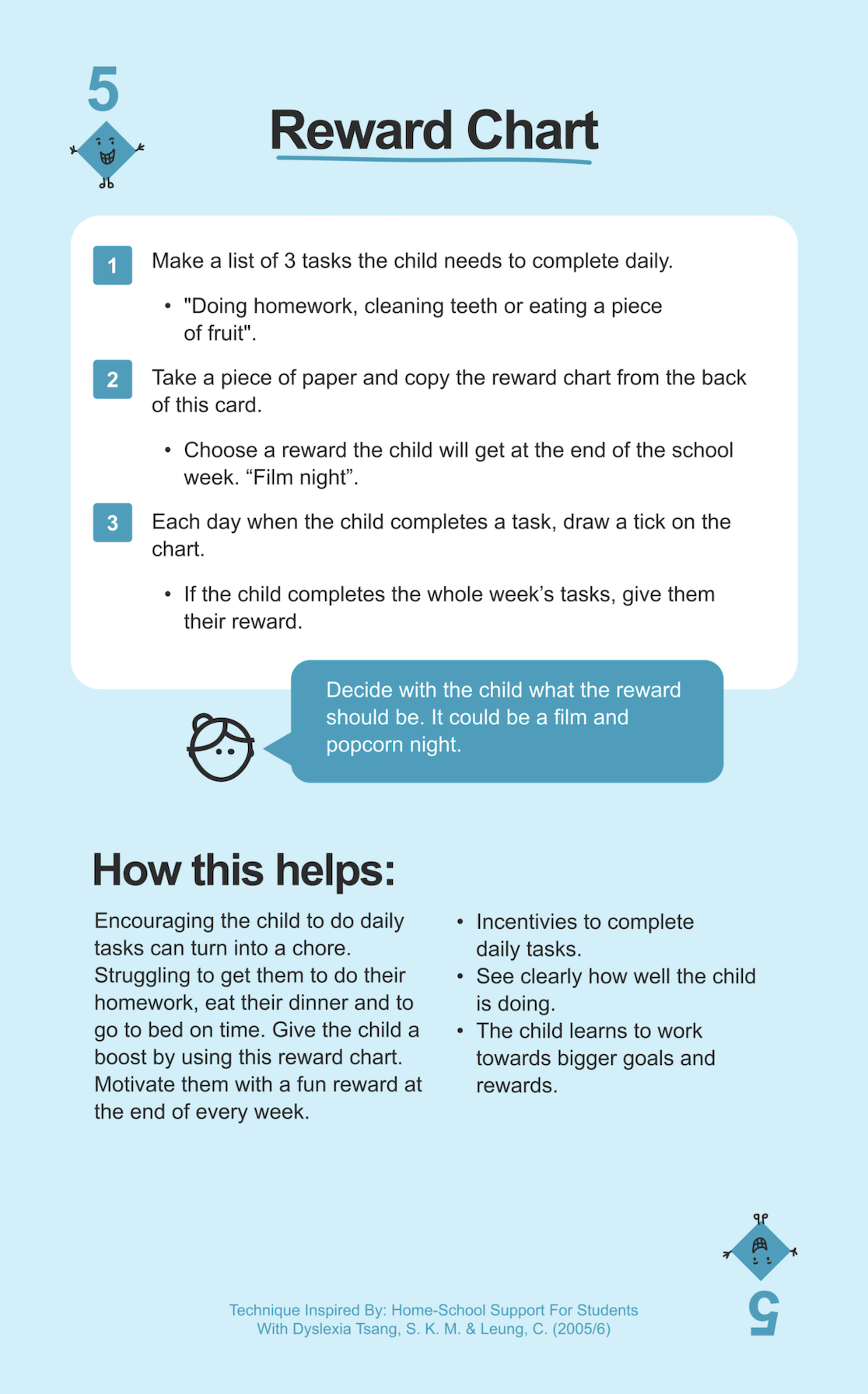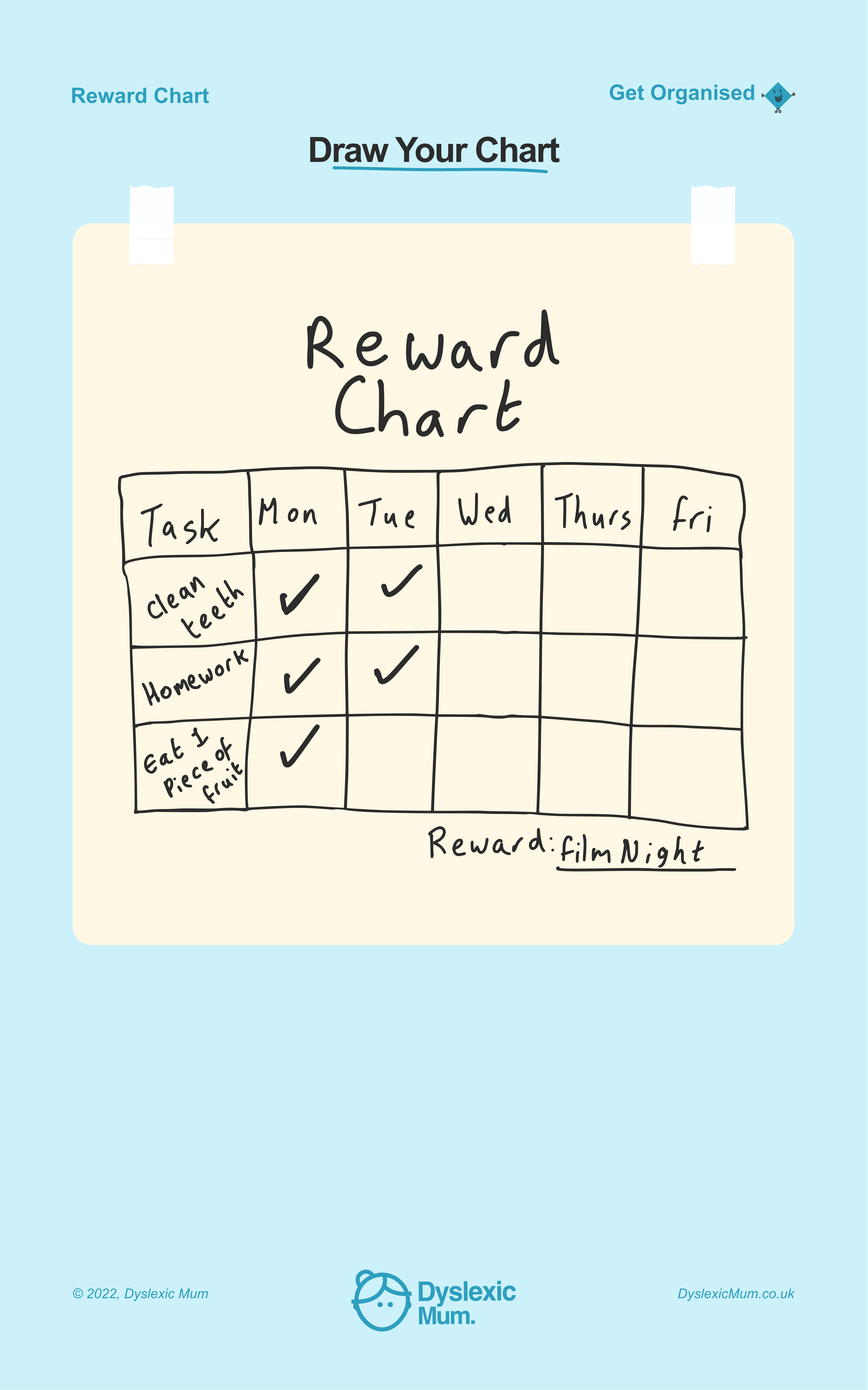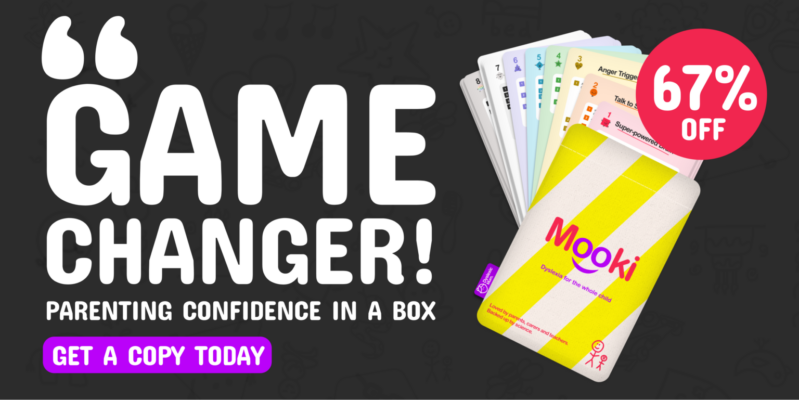Your basket is currently empty!
Motivate a dyslexic child by using rewards to encourage them. The brain releases the feel good chemical dopamine when it receives a reward. This motivates a child to repeat the same behaviour to achieve more rewards.
Positive praise, recognition of achievements in the form of stickers, medals, certificates. Can help boost a child’s self esteem and confidence. Working towards a goal, feeling motivated fulfills a basic psychological need. For a child to grow and interact with the world around them in a positive way.
Learn more about the psychology of motivation, see “Maslow’s Hierarchy of Needs”.
Reward Chart Card
Motivate a dyslexic child to learn new things or to achieve great things, use the “Reward Chart” card from Mooki Cards below. This card is based on scientific research, “Home-school support children with dyslexia“.


Motivate dyslexic child
Get advice from the Dyslexic Mum about how using rewards can motive a dyslexic child to achieve great things:
“Kids will do anything for a sticker. My child does extra reading for her dyslexia at school and she get a sticker at the end. She proudly comes home showing off her sticker and we tell her “well done that is amazing!”. Yet what is a sticker ? It’s just a piece of paper.
Getting a sticker, a certificate, getting told well done. Shows the child that what they have done, what they have achieved is special. This makes children like my little girl, feel proud and happy. These small moments carry a child through life. I still remember winning a medal in a dancing contest at the age of 11, I still feel that sense of achievement. Rewards are a great way to motivate a child to do something and achieve. To help my little girl stay focused I used a rewards chart, it is on the card below for you to use now.”
Watch the clickable video below where the Dyslexic Mum demonstrates how to make a reward chart.
Use the top tips below from the Dyslexic Mum when using the ‘Rewards Chart’ card above:
- Small Goals – Use the reward chart to help the child reach small, manageable goals, such as cleaning their teeth every night. Big goals can make them feel demotivated if they struggle. Check my “Goal Ladders” card for more on setting goals.
- Healthy Rewards – Rewards for a child don’t have to be grand; they can be healthy too. They show you care and recognise the child’s hard work. Give stickers, homemade medals, or certificates. Your time can also be a reward. Plan a family film night or a trip to the local playground.
- Non-Competitive – Reward the child for their efforts and achievements. Avoid turning it into a competition with friends or siblings. This comparison can lead to insecurity, making the child feel they aren’t enough.
Helpful articles
- Dyslexia reward systems
- Motivate your dyslexic child to do well in school
- Motivating students with dyslexia
Everything you need to help a dyslexic child. 56 cards with 10 minute activities. Perfect for using at home or in the classroom. Order your “Mooki Cards” here!

